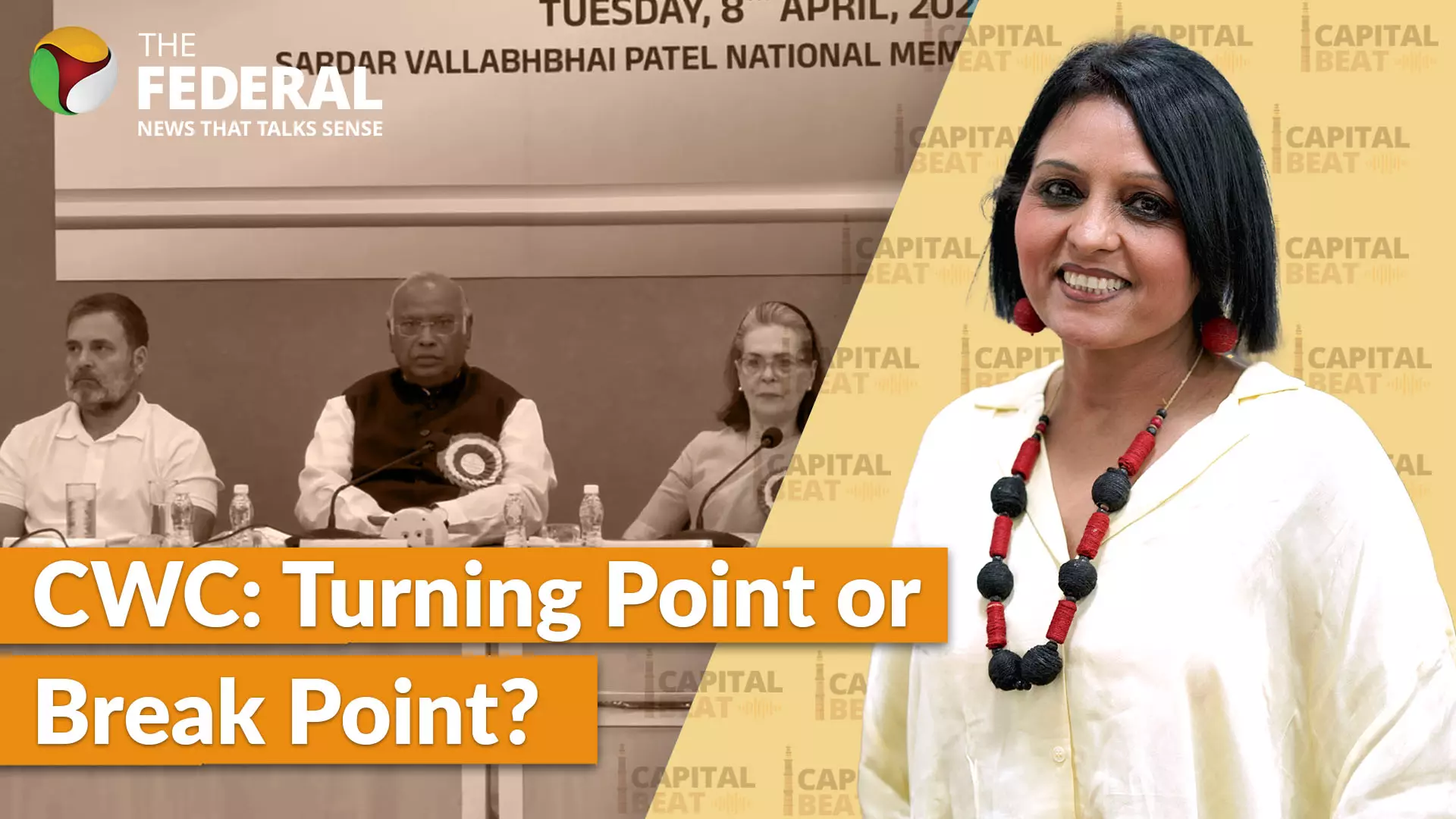
CWC meeting
AICC meeting in Ahmedabad | Day 1 key takeaways
Can Congress reclaim Gujarat and its legacy in PM Narendra Modi’s backyard?

In a recent episode of Capital Beat, host Neelu Vyas engaged with political analysts Puneet Nicholas Yadav, Political Editor at The Federal, and TK Rajalakshmi, Senior Deputy Editor at Frontline, to discuss the implications of the Indian National Congress's two-day convention in Ahmedabad. This gathering marks the party's first in Gujarat in 64 years, aiming to address internal reforms and ideological positioning.
Emphasising historical legacy
The choice of Ahmedabad for the convention is laden with historical significance. This year commemorates the 150th birth anniversary of Sardar Vallabhbhai Patel and the centenary of Mahatma Gandhi's presidency of the Congress in 1924. By convening in Gujarat, the Congress seeks to reaffirm its association with these iconic leaders. Yadav noted that the party aims to project itself as the true heir to Patel and Gandhi's legacy, countering the Bharatiya Janata Party's (BJP) attempts at appropriation. The resolution released during the convention underscores Patel's role in unifying India post-independence and draws contrasts with the current government's policies, which the Congress claims foster division.
Also read: AICC session in Ahmedabad may give two clear political messages, focus on revival
Focus on organisational reforms
A central theme of the convention is organisational restructuring. The Congress Working Committee (CWC) discussed measures to empower District Congress Committees (DCCs). Yadav highlighted that recent meetings between party leadership and over 800 DCC presidents indicate a commitment to decentralising authority and strengthening grassroots structures. However, he expressed skepticism about the practical implementation, given the entrenched influence of senior state leaders over DCC appointments. The challenge lies in ensuring that newly empowered DCCs operate independently and effectively.
Ideological clarity, roadmap
Rajalakshmi emphasised the need for the Congress to articulate a clear ideological stance. While the party reiterates its commitment to secularism and combating divisive politics, she argued that a detailed, actionable plan is essential. The resolution's focus on Gujarat-specific issues, such as resource exploitation and social divisions, may not sufficiently address broader national concerns. Rajalakshmi stressed that without a comprehensive ideological framework, organisational reforms might not yield the desired revitalisation.
Priyanka missing in action
The absence of Priyanka Gandhi from the convention sparked discussions about her role within the party. Yadav clarified that she was abroad for personal reasons, a fact communicated to the party leadership well in advance. Despite speculations, there is no confirmed information regarding an imminent elevation of her position within the party.
Also read: Ahmedabad: Congress top brass discuss road ahead, poll preparedness
The Ahmedabad convention represents a strategic effort by the Congress to reconnect with its historical roots and address internal challenges. While the emphasis on legacy and organisational reform is evident, the party's success will depend on translating these discussions into concrete actions and articulating a clear, nationwide ideological vision.
The content above has been generated using a fine-tuned AI model. To ensure accuracy, quality, and editorial integrity, we employ a Human-In-The-Loop (HITL) process. While AI assists in creating the initial draft, our experienced editorial team carefully reviews, edits, and refines the content before publication. At The Federal, we combine the efficiency of AI with the expertise of human editors to deliver reliable and insightful journalism.

